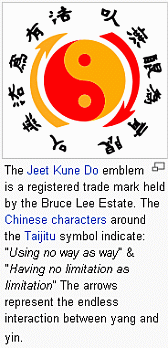|
|
| Legalism |
| Legalism - 法 家 |
|
|
|
Though they are largely considered
the great Satan's of Chinese history, the group
of philosophers and administrators known as the
Legalists represent a first in Chinese government:
the application of a philosophical system to government.
Despite their dismal failure and subsequent deionisation
throughout posterity, the philosophical and political
innovations they practiced had a lasting effect
on the nature of Chinese government.
Chinese Philosophy
The basic starting point for the early Confucianists
(Confucius and Mencius) was that human beings
were fundamentally good; every human was born
with te , or "moral virtue." The third
great Confucianist of antiquity, Hsün Tzu (fl.
298-238 B.C.), believed exactly the opposite,
that all human beings were born fundamentally
depraved, selfish, greedy, and lustful. However,
this was not an entirely dark and pessimistic
view of humanity, for Hsün Tzu believed that humans
could be made good through acculturation and education
(which is the basic view of society in Europe
and America from the eighteenth to the twentieth
centuries: humans are fundamentally base and vulgar
but can be taught to be good and refined).
The Birth of Legalism
Hsün Tzu had a gifted pupil called Han Fei Tzu,
who began from the same starting point, but determined
that humans are made good by state laws. The only
way to check human selfishness and depravity was
to establish laws that bountifully rewarded actions
that benefit others and the state and ruthlessly
punish all actions that harmed others or the state.
For Confucius, power was something to be wielded
for the benefit of the people, but for Han Fei,
the benefit of the people lay in the ruthless
control of individual selfishness. Since even
the emperor cannot be counted on to behave in
the interests of the people, that is, since even
the emperor can be selfish, it is necessary that
the laws be supreme over even the emperor. Ideally,
if the laws are written well enough and enforced
aggressively, there is no need of individual leadership,
for the laws alone are sufficient to govern a
state.
Legalism in Governance
When the Qin gained imperial power after decades
of civil war and finally united China into one
people, they adopted the ideas of the Legalists
as their political theory. In practice, under
legalists such as Li Su (d. 208 B.C.) and Chao
Kao, the Legalism of the Qin dynasty (221-207)
involved a uniform totalitarianism. People were
conscripted to labour for long periods of time
on state projects, such as irrigation projects
or the series of defensive walls in northern China
which we know as the Great Wall; all disagreement
with the government was made a capital crime;
all alternative ways of thinking, which the Legalists
saw as encouraging the natural fractiousness of
humanity, were banned. The policies eventually
led to the downfall of the dynasty itself after
only fourteen years in power. Local peoples began
to revolt and the government did nothing about
it, for local officials feared to bring these
revolts to the attention of the authorities since
the reports themselves might be construed as a
criticism of the government and so result in their
executions. The emperor's court did not discover
these revolts until it was far too late, and the
Qin and the policies they pursued were discredited
for the rest of Chinese history.
Han
Synthesis
But it is not so easy to dismiss Legalism as this
short, anomalous, unpleasant period of totalitarianism
in Chinese history, for the Legalists established
ways of doing government that would profoundly
influence later governments. First, they adopted
Mo Tzu's ideas about utilitarianism; the only
occupations that people should be engaged in should
be occupations that materially benefited others,
particularly agriculture. Most of the Qin laws
were attempts to move people from useless activities,
such as scholarship or philosophy, to useful ones.
This utilitarianism would survive as a dynamic
strain of Chinese political theory up to and including
the Maoist revolution.
Second, the Legalists invented what we call "rule
of law," that is, the notion that the law
is supreme over every individual, including individual
rulers. The law should rule rather than individuals,
who have authority only to administer the law.
Third, the Legalists adopted Mo Tzu's ideas of
uniform standardization of law and culture. In
order to be effective, the law has to be uniformly
applied; no one is to be punished more or less
severely because of their social standing. This
notion of "equality before the law"
would, with some changes, remain a central concept
in theories of Chinese government. In their quest
for uniform standards, the Qin undertook a project
of standardizing Chinese culture: the writing
system, the monetary system, weights and measures,
and the philosophical systems (which they mainly
accomplished by destroying rival schools of thought).
This standardization profoundly affected the coherence
of Chinese culture and the centralization of government;
the attempt to standardize Chinese thought would
lead in the early Han dynasty (202 B.C.-9 A.D.)
to the fusion of the rival schools into one system
of thought, the so-called Han Synthesis.
Acknowledgement
China Expats considered the above to be a perfect
introduction to Legalism, and so we have only
lightly edited the text as provided by Richard
Hooker of Washington State University, USA. We
acknowledge his copyright to the above work, and
reproduce it here under Collective Commons 3 licence.
To view the original work please follow this link:
http://www.wsu.edu/~dee/CHPHIL/LEGALISM.HTM |
|
|
Further Reading
For a more in depth look at legalism please follow
the link below to the excellent Wikipedia:
http://en.wikipedia.org/wiki/Legalism_(Chinese_philosophy)
Here is another great link which really goes into
a lot of detail about Legalism and its main protractors:
Han Fei Tsu and The Qin:
http://www.san.beck.org/EC16-Legalism.html
|
|
|
|
|
Please Note:
The main text of this article is as edited and adapted
by China Expats from the excellent Wikipedia, and is
reproduced under Collective Commons licence:
http://en.wikipedia.org/wiki/Taoism
Pronunciation and Writing:
Please remember that Romanisation of Chinese characters
is not easy, and with Taoism in particular it becomes
most complex because many words written in English that
the world at large understands - are in fact based on
Traditional Chinese characters from Hong Kong or Taiwan
- and even Korea or Vietnam! Mainland Cantonese Romanisation
is not the same, and then there is also the mainstream
Mandarin version. Therefore you should accept that:
Cheung Zi is Hong Kong spelling; Zheng Zhi is Mainland
Cantonese ('e' being pronounced 'u' almost); and Zhang
Zi is Mandarin. Zhuang Zi is Taiwan spelling in English
- - - and they all write both characters as one word
in English. Whichever one you personally prefer, the
Chinese characters remains the same.
There are some significant
differences between lawyers in China and lawyers
in the US. Lawyers in the US have to spend seven years
getting their law
degrees, where Chinese lawyers need to get only
three years of training. The years of schooling that
a Columbus
criminal attorney goes through in the US can cost
well over $100,00, but in China the cost of a legal
degree is only around $10,000. |
|
Disclaimer:
Please check this information yourself as it may alter
without notice, and whilst we try our best to ensure
it is correct, please do not hold us responsible for
any errors - this is intended as a simple guide only |
|
| Search
this Website |
|
|
| Our
Friends |

Professional
Visa Services
Company
Formation Packages
.
|
Excellent
& Free Online Chinese Language Portal

Thousands of free print-friendly Chinese reference sheets,
tests and revision aids.
Easy Learning format &
Listen to Spoken Words |

British Foreign Office
Resource and Advice for Travellers Worldwide |

Chinese Embassy in UK
Information About China
International Relations
Visa & Consular |

UK Embassy in China
Information About UK
International Relations
Visa & Consular |

|
Excel
Education |
Languages Courses
Study Abroad
Employability
Summer Camps
Information for Teachers |
|

Excellent and relaxing base to
explore this most beautiful of regions in all China! |
Down The Road.org
How We Traded Our Ordinary Lives For a Global Bicycle Touring Adventure

See
Us in China |

Empowering Underprivileged Children
& Their Communities = Worldwide |
 |

Based in Shangri-la,
Yunnan
Province
Dedicated to Exploring Remote Areas of China
Committed to Nature Conservation and Preserving Ethnic
Cultures & Traditions
|

Based in Xi'an,
China's Premiere Travel Agency and International Travel
Community -
Committed to providing:
Best travel deals & current information for all
International Travellers |

Pearl Dragon
Vast
Online Trading and Information Resource
Link goes to Chinese Tourism and Galleries Section |
| Film
Highlights |
 |
|